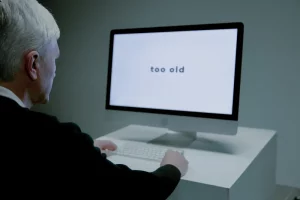How FEHA Can Help a CA Employment Discrimination Case

The Fair Employment and Housing Act (FEHA) is the primary law that protects California employees from workplace discrimination, harassment, and retaliation.
And thanks to a fairly recent revision to the law, employees now have more time to file a FEHA complaint.
For help, or questions about how the FEHA affects you in the workplace, contact the team at Ottinger Employment Lawyers for more information today.
What Is FEHA?
FEHA prohibits discrimination in the workplace based on a person’s
- Race,
- Religious creed,
- Color,
- National origin,
- Ancestry,
- Physical disability,
- Mental disability,
- Medical condition,
- Genetic information,
- Marital status,
- Sex,
- Gender,
- Gender identity,
- Gender expression,
- Age,
- Sexual orientation, or
- Veteran or military status.
Unlike federal law, which offers piecemeal protection for specific groups (e.g. the Americans with Disabilities Act prohibits workplace discrimination based on a mental or physical disability), the California FEHA protection extends to just about all California workers.
Specifically, FEHA makes it illegal for an employer to discriminate based on any of the protected categories listed above:
- Refusing to hire someone for a job or training program;
- Firing an employee from a job or training program; or
- Providing unequal compensation or terms, conditions, or privileges of employment.
Labor unions and employment agencies also are barred from discriminating based on these factors.
What Is the FEHA Statute of Limitations?
The statute of limitations is the length of time you have to file an administrative claim or lawsuit. For a California FEHA employment discrimination claim, the statute of limitations used to be one year.
However, Assembly Bill (AB) 9 extended the time period for filing a FEHA complaint to three years. But it only applies to employment discrimination that happened after January 1, 2020.
It does not revive expired claims.
FEHA Claims Process
The first step in making an employment discrimination claim against your employer is to file a complaint with the California Department of Fair Employment and Housing (DFEH).
At that point, you can opt to have DFEH investigate your claim or ask DFEH to issue a right-to-sue notice.
It’s best to request a right-to-sue notice only if you have an experienced employment attorney to help you file a lawsuit.
How the AB 9 Extension Impacted the FEHA Statute of Limitations
The impact of the AB 9 extension was to give employees three years to file employment discrimination claims in the DFEH.
Once the DFEH issues a right-to-sue letter, the employee has another year to file a lawsuit. So the AB 9 extension effectively extended the statute of limitations to over four years.
Recovery Options on a California FEHA Employment Discrimination Claim
The purpose of filing a lawsuit based on California anti-discrimination laws is to seek compensation for the economic and non-economic damages you suffered because of your employer’s actions.
Economic damages restore measurable financial losses such as:
- Unpaid past wages,
- Lost future wages,
- Lost benefits, and
- Job search costs.
These damages are intended to cover your actual and out-of-pocket losses.
Noneconomic damages compensate you for the more subjective hardships that result from employment discrimination, such as:
- Emotional distress,
- Anxiety,
- Loss of enjoyment of life, and
- Post-traumatic stress.
A court sometimes will also award punitive damages to punish an employer for particularly malicious discrimination and to deter them from doing the same thing in the future.
Next Steps for Those Who Still Have Time to File
Some people who have been discriminated against, harassed, or retaliated against at work need time to process what has happened and end up missing the one-year statute of limitations to file a claim.
That was part of the rationale for extending the limitation period to three years. If you are one of these people, but you’re still within the three-year window, you should seek help from a seasoned employment attorney.
At Ottinger Employment Lawyers, employment law is all we do. We focus on client happiness and results. Schedule a consultation today to see how we can help you through this challenging time.



